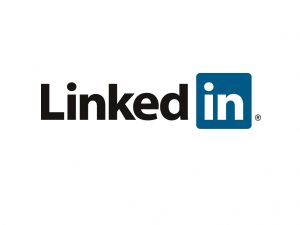 Linkedin’s loss of data after a security breach could have far-reaching effects for the social network. In truth, although always pitched as the professionals’ network, when your feed is largely filled with re-postings from Twitter or Tumblr, you might start to wonder how much of an in-road it has actually made into social networking behaviour and how relevant it really is.
Linkedin’s loss of data after a security breach could have far-reaching effects for the social network. In truth, although always pitched as the professionals’ network, when your feed is largely filled with re-postings from Twitter or Tumblr, you might start to wonder how much of an in-road it has actually made into social networking behaviour and how relevant it really is.
I’d argue Linkedin has long since failed to make the same sort of cultural impact as its main competitors. From a connections perspective how interesting is it to read about people showing off? I’ve long thought if I wanted to start the day with a blow to my confidence I’d have a read through the exploits of my seemingly far better connected and ambitious Linkedin connections. Interaction, via anything other than Messages is difficult, so why would you not just use email? In terms of brand yes it is good to have a corner of the ‘Net that’s purely for professionals but the focus has never been on what you get for free, more what you might get if you pay. It always makes you feel like a second class citizen.
The information you hand over does not feel as though it is sacrosanct. In the same way Facebook is increasingly used as a cheap alternative to a mailout, increasingly businesses use Linkedin to send out their news. It feels too much like an intrusion. In terms of security and spam the network has proved frustrating, and not simply from this data breach. Spam through Linkedin groups is one of the most frustrating elements of the network. Any member can send anything to any group unless you carefully change your settings. Much like with Facebook’s privacy settings the option is there but it isn’t necessarily easy to find. Complaints to Linkedin have had no response, at least not to this user. Just because you join a group it doesn’t mean you want every member to send you directly information about what they have planned that day/week/month. Yes, settings can be changed but yes it’s difficult to find.
Yet this has never been the most intrusive aspect of Linkedin. It’s original focus, using the seven degrees of separation theory to make business more connected you could be introduced to new contacts but only link-up with people you actually knew. Now anyone simply says they are a friend and sends you an invite. It devalues the process and makes connections seem flimsy rather than substantial. One client said to me as a selling point that he personally knew every Linekdin connection. The whole point of the network was supposed to be that everyone could say that, not any more.
Then we examine mobile connections. The first Linkedin app for Android appeared to be hugely fragmented. For some reason it also automatically synchronised the Phonebook and Contacts list. Intrusive doesn’t even begin. Facebook’s biggest challenge is mobile marketing. You simply can’t see everything Facebook wants you to be able to see. Especially adverts. Linkedin is the same. What exactly are you supposed to be looking at? A feed? A message board? Snooping on old bosses, what?
The latest security breach will create even more frustration for a social network that hasn’t been keeping every user onside. The brand has spread itself thin across the site with job adverts, group connections and far too many mailouts. Having people’s email addresses and allowing users to utilise them is a huge responsibility, and not one people enter into lightly. Much in the same way we get frustrated by junk mail coming into our homes via our letter box, the email inbox is a personal space: Invade it at your peril.
Business isn’t a closed door anymore. I’ll admit I have won work and connected with what are now clients via LinkedIn but having a network purely for business doesn’t relate to how we do business anymore. The email security breach, which is already resulting in junk mail this morning, could be another nail in the coffin for a network that could do more to engage with its users and provide them with a better, more intuitive, service.
